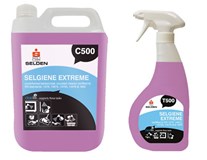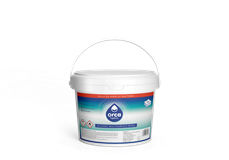The virus that effectively shut down the world in 100 days, has taught us a great deal about Hygiene, and particularly how to manage it
The virus that effectively shut down the world in 100 days, has taught us a great deal about Hygiene, and particularly how to manage it. It has also taught us that we need a new strategy, to manage the effects of any future pandemics or breakouts, to slow the spread down without having to shut everything down.
Businesses, individuals; everyone has been through such a difficult and harrowing time over the last 12 months…. so now is the time to devise a plan to counter the effects of new virus outbreaks to allow us to manage it whilst still allowing businesses to function.
In 2007, statistician Nassim Nicholas Taleb defined “Black Swan” as an event that “is an outlier,” as it lies outside the realm of regular expectations. Black Swans by that definition are mostly unforeseen, rare, and can be created by geo-political, economic, or from other unexpected events.
To distinguish this COVID 19 event from the other epidemics we have endured recently would make it a Black Swan, but COVID 19 was not a Black Swan, because a Black Swan is an unpredictable event, but with the seasonal flu, norovirus and colds as frequently present as they are, and our seasoned, relevant and recent experience with pandemics, we should have seen this coming.
We have a society that makes it easy for infectious diseases to spread, we live in close contact, touch shared surfaces and share the same spaces and air. Have you noticed that this year you haven’t had a cold or flu? Most years either myself or my husband get a nasty cold and then we ‘share’ it with the rest of the family, but this year that hasn’t happened. This is due to increased hygiene procedures that everyone has put in place. When we go to a shared space, we sanitise; we sanitise everything we touch, shopping trolleys etc and time with other people has been very limited.
The fact that everywhere had to go in to full lockdown across the UK; not once but twice, is a real indication that our hygiene strategy just wasn’t working. Safe work places need to be an absolute necessity. I blogged a couple of weeks ago about returning to work, and not only shared kitchens need to be managed appropriately, but also work stations, chairs, bathrooms etc. Going to work, should be safe, and that can only be done through managing hygiene appropriately.
You can only manage hygiene by killing bacteria and virus’ or hand washing, and I blogged last week about making sure that your products carry the appropriate certifications such as BSEN 1276 and BSEN 14476. I’ve linked our website sections here so that you can see the products we carry which will help you to manage your hygiene appropriately. It is now more important than ever that everyone is managing their hygiene, and it has become business critical to a lot of businesses that we get through this pandemic without having to go in to lockdown again. Using appropriately tested, safe and effective products, is where to begin.
As I inferred previously, infection control has to change forever. Infection control shouldn’t just be something we do in hospitals, it needs to become a way of life. COVID has permeated everyone’s lives in some way or another, and some people have been altered forever, so we must take a new view on hygiene, and as a population take both individual and collective responsibility for the new hygiene strategy.
We must design our lives and our life styles with hygiene in mind. Urban design in the 20th Century was shaped by Cholera and War, so is it a sensible conclusion to remark that the 21st Century will be designed around Coronavirus and Climate? More space, wider doors, more green space, more cycling and walking, staggered commutes and start times (Munter and Ackerly) will be the way in which the 21st Century will be designed?
Will the more space approach be the ‘new’ strategy to avoidance of a new pandemic? Will this be the end of open plan offices, or will a more rigorous approach to cleaning and sanitisation be the answer?
We have been talking about new ways to manage hygiene in the home for while, and the International Forum on Home Hygiene discussed containing the burden of infectious diseases being everyone’s responsibility in 2018 – before this pandemic broke.
This new strategy needs to be created by policy makers, and held up nationally and internationally as a way forward by all countries. Sadly, as we have seen throughout this years pandemic, it was the divergence of approaches across the world which has lead to the spread of this virus, and the mismanagement of a united approach.
Businesses are looking for more expertise than ever before in terms of advice and guidance. Getting the right advice, specifically tailored to your unique situation or area is key in terms of making your own hygiene strategy. Making businesses safe for employees to come back rests firmly on employers, and it remains your responsibility to keep your team safe. Customer safety is also the responsibility of businesses, so in terms of burden that is a lot! Get the right advice, give us a call at Astral, our advice and guidance is free, so please use it!















